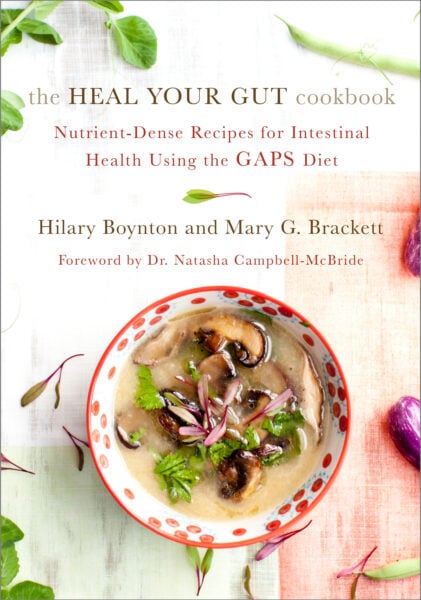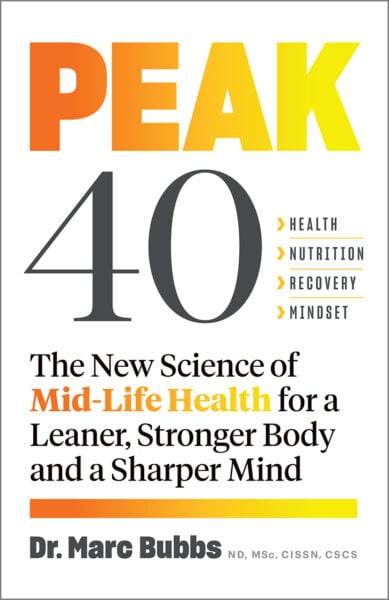Eating Well Made Easy: Practicing Stress-Free Eating

Eating well doesn’t have to be stressful or complicated. We don’t need to go on the latest fad diet, count every single calorie, or exercise for an hour each day to reach optimal health; all we need to do is remain mindful of what we’re putting into our bodies and how we’re consuming these foods. To truly practice and stick with good eating habits, we should start by paying attention to our daily routine and making small alterations where necessary. Below are some quick and easy ways to practice stress-free eating in our daily lives.
The following is an excerpt from Holistic Cancer Medicine by Henning Saupe MD. It has been adapted for the web.
Good eating habits are not only part of our intestinal health, but also the basis of the health of our entire organism.
Time
Meals should not be eaten in between doing other things and while standing or walking, but should be given the time they deserve. Rushing and stress when eating can, in the truest sense of the word, upset the stomach: A calm atmosphere, so that our senses can concentrate on the food, and enough time are important prerequisites so that we can eat our food without stress and then digest it well. Rushed gobbling down, eating food that is too hot, or perpetually eating a cold snack because you have to get going again in a hurry all put unnecessary strain on the stomach and intestines and lead to digestive problems such as abdominal pain, constipation, and flatulence.
 With the help of saliva, the flow of which is stimulated by extensive chewing, the digestion of food begins in the mouth. Here, the food is prepared by certain enzymes that break down carbohydrates, in order to be further broken down into its components in the stomach with the support of gastric acid. If we regularly rush to eat and do not chew sufficiently, not only do our stomach and intestines have problems breaking down the food, but also we do not notice when we are actually full. The familiar feeling of fullness after a meal is not exclusively related to the amount of food eaten, but often also to the time it took to eat it: It takes about twenty minutes for the stomach to signal to the brain whether enough food has been consumed.
With the help of saliva, the flow of which is stimulated by extensive chewing, the digestion of food begins in the mouth. Here, the food is prepared by certain enzymes that break down carbohydrates, in order to be further broken down into its components in the stomach with the support of gastric acid. If we regularly rush to eat and do not chew sufficiently, not only do our stomach and intestines have problems breaking down the food, but also we do not notice when we are actually full. The familiar feeling of fullness after a meal is not exclusively related to the amount of food eaten, but often also to the time it took to eat it: It takes about twenty minutes for the stomach to signal to the brain whether enough food has been consumed.
People who often eat quickly until they “can’t manage any more” also put a strain on their whole organism. The regular excess thus often translates to gained weight. For this reason, in Japan there is said to be a behavior of always finishing a meal before feeling full, which is estimated to correspond to only 70 percent of a meal. Since the stomach lags behind a little with its reporting, as just mentioned, this method can be used to determine after a while that 70 percent is enough to feel sufficiently full.
Disruptive Factors
In our busy and multimedia (Western) world, we are now subject to constant noise, ringing, and chatter, and there are more and more moving images (with sound) on flatscreens, even in restaurants, bars, and cafes.Above all, we should have a break from the phone, computer, and television, but also the radio, a book, or a newspaper when we’re eating, so that we can concentrate fully on the food. Our senses are otherwise occupied with absorbing and processing the information and not with absorbing and processing the food.
Appreciation and Regularity
 A fresh, diverse, and varied diet is also associated with a certain self-worth. Only those who value themselves will allow themselves the regular preparation of good food. Valuing yourself, the perception of your own and actual needs, is a prerequisite for a fulfilled, healthy life. A positive attitude toward life, respect for yourself and other living beings, one could even say a true or real self-love, leads to doing good for yourself and others. The proverb “the way to a man’s heart is through his stomach” is often used with a smile to describe lovers cooking together, but it actually shows quite well how we relate to ourselves and our world/surroundings. The regularity of our meals or whether we want to eat anything at all can also reflect this to a certain extent. Apart f rom the already mentioned intermittent fasting, a (regular) fasting day or a fasting cure, it is not healthy to (consciously) starve yourself again and again. Depending on the exertion and strain on our organism, we should meet the need to eat sufficient and healthy food and eat regularly in a way that allows our body to function as well as possible.
A fresh, diverse, and varied diet is also associated with a certain self-worth. Only those who value themselves will allow themselves the regular preparation of good food. Valuing yourself, the perception of your own and actual needs, is a prerequisite for a fulfilled, healthy life. A positive attitude toward life, respect for yourself and other living beings, one could even say a true or real self-love, leads to doing good for yourself and others. The proverb “the way to a man’s heart is through his stomach” is often used with a smile to describe lovers cooking together, but it actually shows quite well how we relate to ourselves and our world/surroundings. The regularity of our meals or whether we want to eat anything at all can also reflect this to a certain extent. Apart f rom the already mentioned intermittent fasting, a (regular) fasting day or a fasting cure, it is not healthy to (consciously) starve yourself again and again. Depending on the exertion and strain on our organism, we should meet the need to eat sufficient and healthy food and eat regularly in a way that allows our body to function as well as possible.
Rest Breaks
On the other hand, in the case of a lack of energy, it may also be appropriate to help the organism regain energy not by eating but, for example, by getting enough sleep and taking regular breaks for sleep and rest. The body can also signal a desire for food when the underlying need is actually relaxation or sleep, or when we should be attending to our body (and mind) in other ways.
The Exception Proves the Rule
Since we all deal differently with rules and their deployment and adherence, stress-free eating or stress-free eating habits ultimately include the exception: Unless we are supposed to stick to a strict diet plan for a certain period of time for medical reasons, a glass of wine, dark chocolate, or similar treats should not lead to a bad conscience or unnecessary stress. If you want to eat a vegetarian or vegan diet for ethical reasons, you should pay close atten-tion to plant-based fats and oils, proteins, and minerals. Otherwise, eating good-quality meat or fish raised with species-appropriate husbandry presents a healthy exception to the vegetarian diverse and f resh diet.If we generally eat a varied, diverse, and f resh diet, it is not a problem if one (unhealthy) exception proves the rule.
Recommended Reads
Recent Articles
Introducing…your new favorite brunch dish! This whole broccoli frittata is packed with fresh, wildcrafted flavors that are bound to help you start your day off on the right foot. The following is an excerpt from The Forager Chef’s Book of Flora by Alan Bergo. It has been adapted for the web. RECIPE: Whole Broccoli Frittata…
Read MoreMany know the effects of catnip on our feline friends, but few realize that catnip has medicinal effects for humans. From stomach aches to reducing fevers, catnip is a versatile herb with many benefits. The next time you grow this plant for your cat you may end up taking a few cuttings for yourself! The…
Read MoreWondering where to forage for greens this spring? Look no further than hedges, which serve as natural havens for wild greens and herbs! The following is an excerpt from Hedgelands by Christopher Hart. It has been adapted for the web. Food from Hedges: Salads and Greens Let’s start by looking at all the wild foods…
Read MoreThere’s a whole new world out there when it comes to koji. It doesn’t matter if you’re making bread, cheese, or ice cream, koji helps you pump up the flavor! Growing Koji in Your Own Kitchen Koji, the microbe behind the delicious, umami flavors of soy sauce, miso, fermented bean sauce, and so many of…
Read MoreWhether you’re looking to replace your end-of-the-day cocktail, relax before bed, or want something new to add to your tea, this non-alcoholic mocktail syrup base will do the trick. Delicious and all-natural, take a sip of this nightcap mocktail and feel your troubles melt away. The following is an excerpt from Herbal Formularies for Health…
Read More









